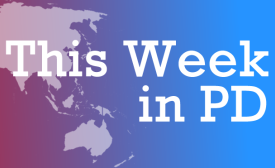social media
At first glance, it seems obvious -- of course Twitter and YouTube have the right to take down a video showing the American journalist, James Foley, being beheaded. The question is why taking it down is controversial at all. The answer, I think, shows how important services like Twitter have become, and how this has thrust unexpected responsibilities onto them.
For about three hours Wednesday morning, the Ukrainian flag was flying high over Russia’s capital city. Protesters fastened a blue-and-yellow banner to the Soviet star atop the spire of one of Moscow’s Stalin-era “Seven Sisters” skyscrapers on the Kotelnicheskaya Embankment about a mile from the Kremlin.
Google “Kosovo”, and Petrit Selimi knows exactly what you’re going to see: dry, diplo-speak scouting reports at best, and depressing references to past conflicts at worst. It’s not exactly the promotional buzz a fledgling country with sights set on global integration would hope for.
Twitter just made it easier for celebrities, and other verified users, to interact with each other on the platform. Two new features rolled out on Wednesday will increase the visibility of verified users in each other's feeds — effectively encouraging high-profile users to trade more compliments, insults or expressions of undying love.

This week in public diplomacy, we looked at how culture is being used to redefine the 'coolness' of countries through gastrodiplomacy, music, art, and fashion.
The Pope’s social media expert said Wednesday that Catholics should be using social media to make the atmosphere online a positive place where people can deepen their relationships with one another.
Hollywood celebrities aren’t the only ones whose tweets go viral these days. Some military leaders are taking to social media just as other government leaders and agencies are. The Central Intelligence Agency, for example, made headlines in June with its first tweet: “We can neither confirm nor deny that this is our first tweet.” It was shared more than 50,000 times in its first hour.
The reputation of a country is comparable to the brand images of companies and products and it’s very essential for its progress and prosperity. The need to understand and embrace nation branding is therefore very critical. Subsequently, managing a country brand is about national, regional and international identity and the politics and economics of competitiveness. But what happens when a nation brand goes through a crisis?







